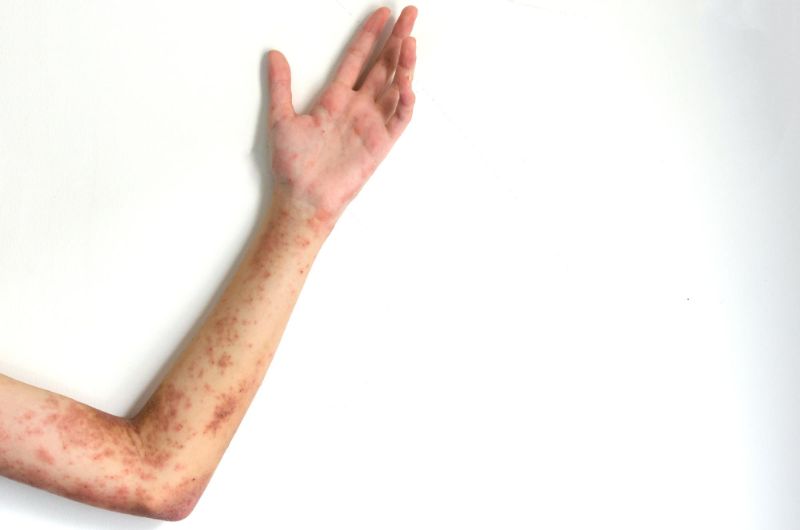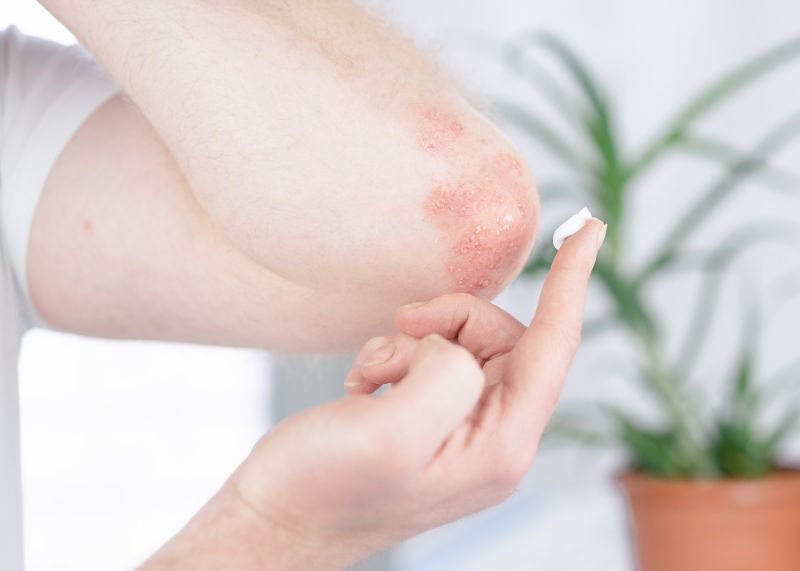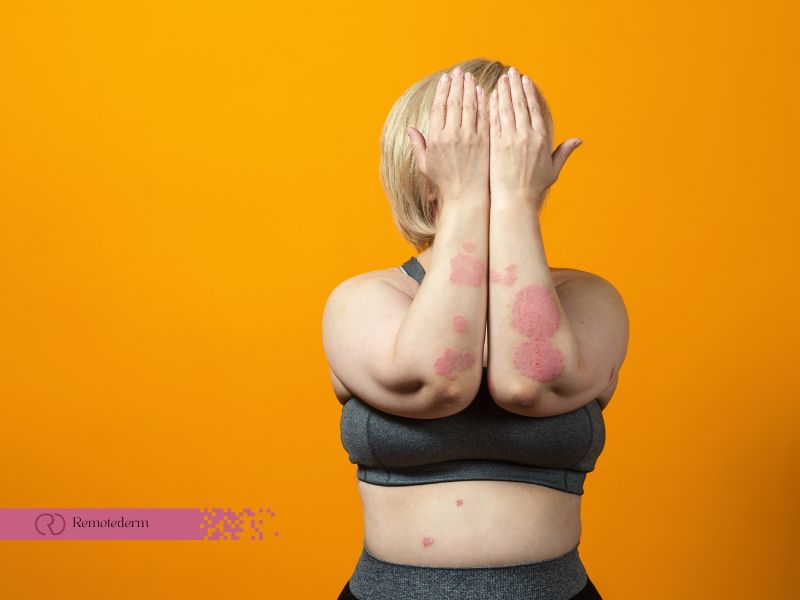If you’re one of the millions of people worldwide who suffer from summer eczema, it’s time to take control and reclaim your skin health. In this comprehensive guide, we’ll delve into the nitty-gritty of managing eczema during the summer months. From understanding the triggers and factors influencing summer eczema to practical tips for protecting your skin from the sun and managing sweat and heat, we’ve got you covered. Plus, we’ll explore natural remedies and provide insights on minimizing exposure to triggers. Get ready to say goodbye to itchy, inflamed skin and hello to a summer of healthy, happy skin.
Understanding Summer Eczema
Before delving into the specifics of managing eczema during the summer season, it’s essential to gain a comprehensive understanding of what eczema is and how it affects individuals.
What is Eczema?
Eczema, commonly known as atopic dermatitis, is a chronic inflammatory skin disease that affects millions of individuals throughout the world. It is distinguished by red, itchy, and inflammatory skin patches that can occur anywhere on the body. These patches can be dry, scaly, and sometimes accompanied by blisters or crusts.

The precise cause of eczema is unknown, however, it is thought to be a combination of hereditary and environmental factors. People who have a family history of eczema, allergies, or asthma are at a higher risk of having this ailment. Environmental factors like certain irritants, allergens, heat, humidity, and seasonal changes can trigger or worsen eczema symptoms.
Factors Influencing Summer Eczema
When it comes to managing eczema during the summer, it is important to understand the various factors that can influence the condition and potentially trigger flare-ups. Let’s take a closer look at these elements:
- Heat and Humidity: The combination of high temperatures and increased humidity levels during summer can be a significant challenge for individuals with eczema. Excessive heat and humidity can lead to excessive sweating, which can irritate the skin and trigger eczema symptoms. The moisture on the skin can disrupt the natural barrier function, making it more susceptible to inflammation and itchiness.
- Sun Exposure: While sunlight has some benefits for the skin, prolonged exposure to the sun’s ultraviolet (UV) rays can have detrimental effects on individuals with eczema. UV rays can cause skin dryness, increase sensitivity, and worsen existing eczema symptoms. It is crucial for people with eczema to protect their skin from excessive sun exposure by using broad-spectrum sunscreen, wearing protective clothing, and seeking shade during peak hours.
- Chlorinated Water: The chlorine present in pool water can be an irritant for individuals with eczema. Chlorine has a drying effect on the skin, which can disrupt the skin barrier and trigger eczema flare-ups. Taking a shower immediately after swimming and moisturizing the skin can help minimize the potential negative impact of chlorinated water.
- Allergens: Summer brings an increase in outdoor allergens such as pollen, grass, and mold. These allergens can act as triggers for eczema flare-ups, especially for individuals who are sensitized to them. When allergens come into contact with the skin, they can induce an immune response and exacerbate eczema symptoms.
Protecting Your Skin from the Summer Sun

Sun exposure can be both beneficial and detrimental to individuals with eczema. While sunlight provides vitamin D, which promotes skin health, excessive exposure can trigger eczema flare-ups. Here are some tips to protect your skin from the summer sun:
- Apply Sunscreen Regularly: Look for sunscreens specifically formulated for sensitive skin and free of potential irritants such as fragrances and dyes.
- Seek Shade: It is best to seek shade during peak hours of sunshine, which are usually between 10 a.m. and 4 p.m.
- Wear Protective Clothing: Covering up your skin with loose-fitting, lightweight clothing can provide an additional layer of protection against the sun.
Dealing with Eczema in the Summer: Tips for a Comfortable Season
With the right strategies and precautions, you can navigate the season with greater comfort and keep your eczema under control. Here are some tips to help you deal with eczema in the summer:
- Hydrate: Drink plenty of water throughout the day to stay hydrated. Proper hydration helps maintain your skin’s moisture levels and prevents excessive dryness, which can exacerbate eczema symptoms.
- Manage Sweat: Excessive sweating can irritate eczema-prone skin. Take cool showers or baths to soothe your skin and remove sweat. Use gentle, fragrance-free cleansers and avoid hot water, as it can strip away natural oils and worsen dryness.
- Moisturize: Regularly moisturize your skin to prevent dryness and maintain its protective barrier. Opt for fragrance-free, hypoallergenic moisturizers.
- Choose Breathable Fabrics: Wear clothing made from soft, breathable fabrics like cotton and avoid synthetic materials that can trap heat and moisture.
- Minimize Allergen Exposure: Keep an eye on outdoor allergen levels, such as pollen, and limit your time outdoors during peak times. Use air purifiers at home and keep windows closed.
- Stress Management: Stress can trigger eczema flare-ups. Engage in stress-reducing activities such as yoga, meditation, or deep breathing exercises to help keep stress levels in check and minimize eczema symptoms.
Natural Remedies for Summer Eczema Treatment
When it comes to managing eczema during the summer season, several natural remedies can complement medical treatments and help alleviate symptoms. Here are some natural approaches that individuals with eczema may consider:
- Moisturizing: Regularly applying natural moisturizers, such as coconut oil, shea butter, or aloe vera gel, can help hydrate the skin and reduce dryness and itching.
- Oatmeal Baths: Taking soothing oatmeal baths can provide relief by calming irritated skin. Finely ground oatmeal can be added to lukewarm bathwater to create a soothing soak.
- Cold Compresses: Applying cold compresses to itchy areas can provide temporary relief and help reduce inflammation.
- Natural Anti-Inflammatory Agents: Certain natural ingredients, such as chamomile, calendula, and tea tree oil, have anti-inflammatory properties that can help soothe eczema-prone skin. These ingredients can be used in the form of creams, ointments, or diluted essential oils.
- Herbal Supplements: Some herbal supplements, such as evening primrose oil or fish oil, which contain omega-3 fatty acids, may help reduce inflammation and improve skin health. It’s important to consult with a healthcare professional before starting any supplements.

Seeking Professional Guidance
While implementing the strategies mentioned above can be incredibly helpful in managing your summer eczema, nothing beats the personalized advice of an eczema dermatologist or healthcare professional. The good news is that waiting for dermatologist appointments is no longer a hassle. With RemoteDerm, an innovative online dermatology consultation service, you can conveniently connect with a qualified dermatologist from the comfort of your own home. Through secure online consultations, RemoteDerm allows you to receive expert guidance tailored to your specific needs. Whether you’re seeking online dermatology in Canada, an assessment of your condition’s severity, recommendations for suitable treatments, or additional insights to improve your overall skin health, RemoteDerm has got you covered.
Summer Eczema Conclusion
With the summer eczema survival guide at your fingertips, you now have the knowledge and tools to take charge of your skin health. By understanding the triggers and factors influencing summer eczema, you can proactively manage your condition and minimize flare-ups. From protecting your skin from the sun’s harmful rays to effectively managing sweat and heat, these practical tips will keep your skin feeling comfortable and itch-free.
Additionally, exploring natural remedies and minimizing exposure to triggers offer complementary approaches to support your skin’s well-being. And with the convenience of RemoteDerm, the online dermatology consultation service, you can access personalized guidance from dermatologists without the wait. So, say goodbye to itchy, inflamed skin and hello to a summer filled with confidence, knowing that you have the knowledge and resources to keep your skin healthy and happy.
FAQs
- Can I still go swimming if I have eczema?
Yes, you can still go swimming if you have eczema. However, it’s important to take precautions such as showering immediately after swimming and moisturizing your skin to minimize the potential drying effects of chlorinated water.
- Are there any specific fabrics I should avoid wearing in the summer with eczema?
Yes, it’s best to avoid wearing wool or synthetic materials in the summer as they can trap heat and moisture, potentially exacerbating eczema symptoms. Opt for breathable fabrics like cotton or linen instead.
- How long does it take to see improvements when using natural remedies for eczema?
The time it takes to see improvements when using natural remedies for eczema can vary from person to person. It’s important to be patient and consistent with your chosen remedies, as it may take a few weeks or even months to notice significant changes.
- Can diet affect eczema symptoms during the summer?
While diet alone may not be the primary cause of eczema, certain foods can potentially trigger flare-ups in some individuals. It’s advisable to pay attention to your diet and identify any specific food triggers that may worsen your eczema symptoms.
